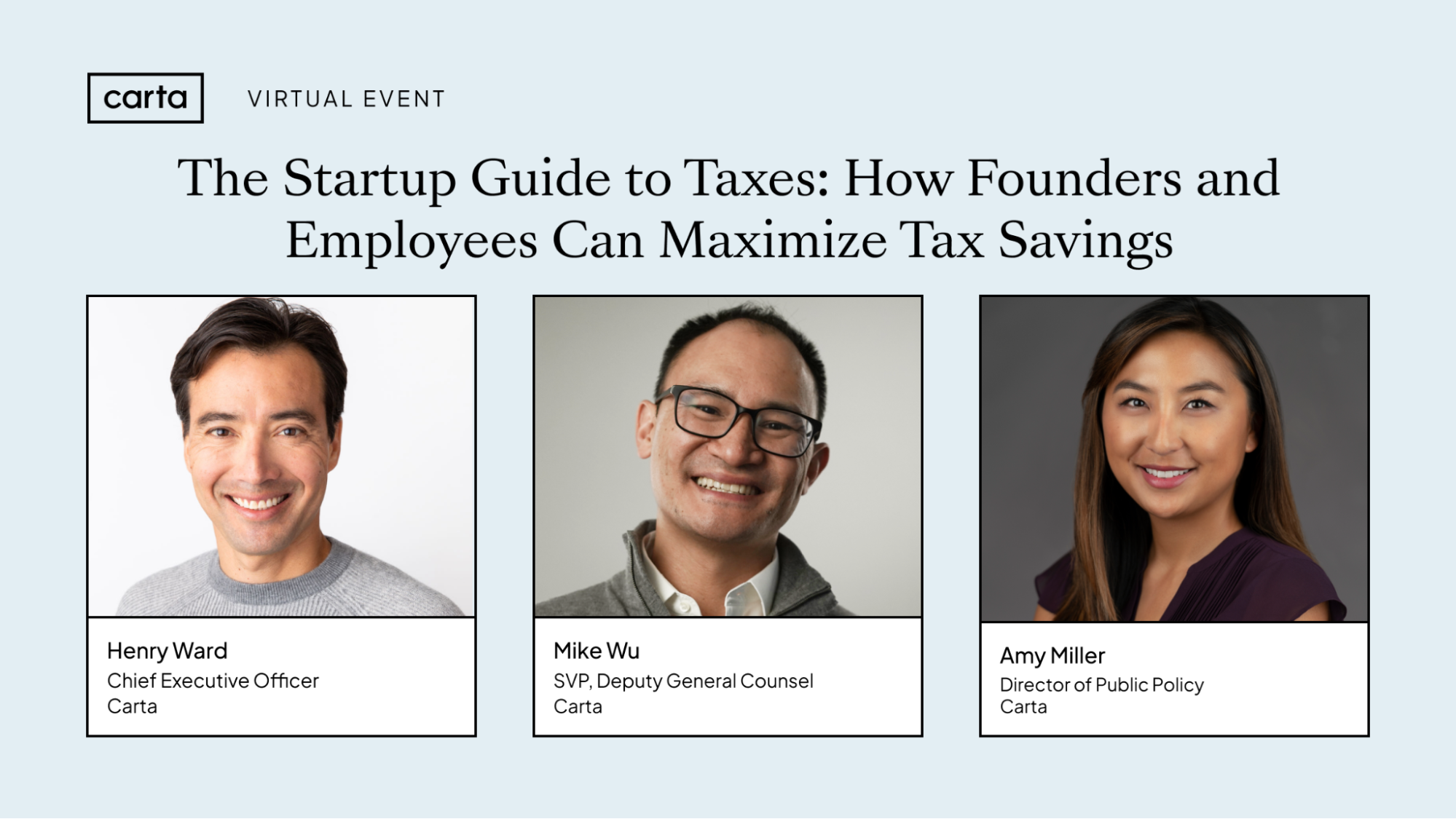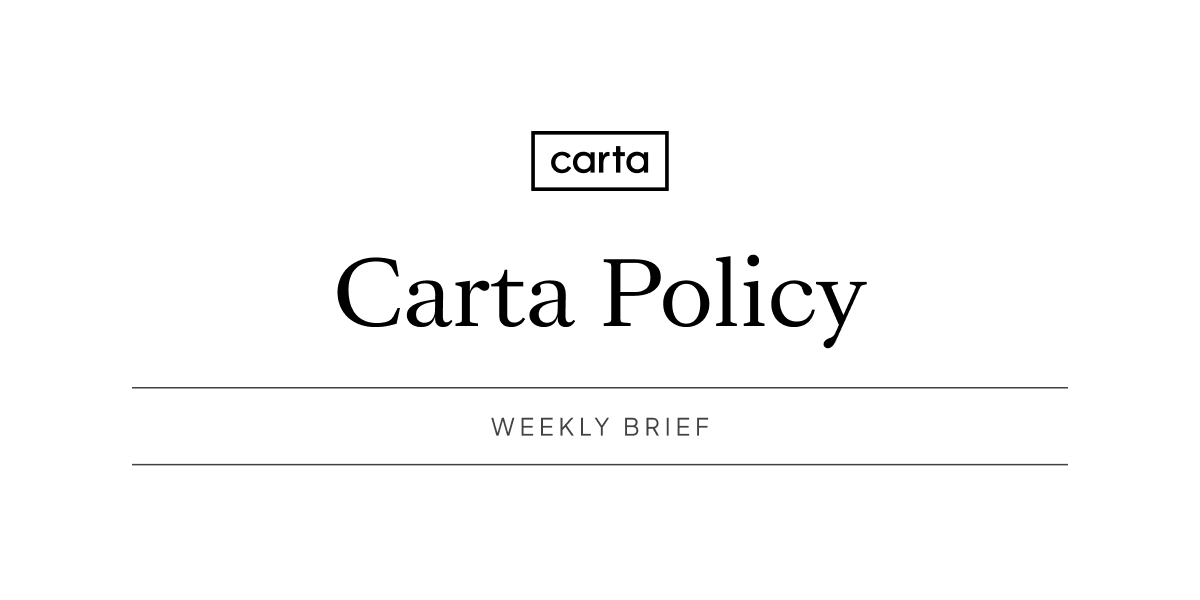Topline
-
SEC to finalize controversial Private Fund Adviser rule next week
-
California considers bill with DEI implications for VCs
-
New CTA proposed regulations on BOI filing deadline extension
SEC to finalize private fund adviser rule next week
Next Wednesday, the SEC is set to approve rules that will fundamentally change how the private fund industry operates and is regulated. These changes would represent the most significant overhaul of private fund regulation since Dodd-Frank. If adopted as proposed, the new rule will impact all private fund advisers, both SEC-registered and venture capital advisers.
Here’s what is in the private fund adviser proposal:
-
New regulatory obligations for SEC-registered private fund advisers, including quarterly investor disclosures around performance, fees, and expenses at both the fund level and portfolio company level; fairness opinions for GP-led secondaries; and independent fund audits.
-
Bans on certain activities and limits on preferential treatment that would apply to all private fund advisers—including VCs. Notably, the proposal would prohibit current industry practices like indemnification for simple negligence, side letter agreements, and the ability for the fund to cover regulatory and compliance expenses.
Impacts on venture capital: While the proposal does not prescribe new affirmative obligations for venture capital fund managers, it would ban a host of activities that would substantially impact how the venture ecosystem operates. These prohibitions would apply despite being fully disclosed and, in some cases, heavily negotiated in LP agreements.
-
Enhanced liability: Fund managers would not be able to limit liability for simple negligence, which is a low bar. But risk is inherent to VC investment, and LPs know this. Heightened liability could inhibit investment in high-risk, high-reward businesses—the very sort of transformative businesses and technologies that create outsize growth.
-
Limits on side letters: Certain bespoke agreements–also known as side letters—between funds and LPs would be prohibited. These provisions are ubiquitous in the industry and are a useful tool for emerging managers to secure anchor investors or bring on institutional investors, which helps build fund credibility and get other investors to follow. In many cases, these agreements are part of that investment decision-making process, it could upset the economics of a particular transaction.
-
Implementation: There is no grandfathering provision in the rule, which means that fund managers will have to scour LPAs and renegotiate bespoke agreements that are contrary to the rule’s proposal—which could be impossible in many cases. Because many of the activities the SEC has proposed banning are standard industry practice, nearly every agreement will immediately be out of compliance.
Bottom line: If adopted as proposed, these rules will enhance compliance and disclosure obligations, increase liability exposure, and alter relationship dynamics between funds, their investors, and their portfolio companies. Small and emerging managers will be disproportionately affected, as they may not have the resources to adapt to new compliance challenges. These barriers could lead to more concentration, less diversity, and prevent emerging ecosystems from flourishing.
What’s next:
-
SEC Chair Gensler will have the support to pass the rule with a 3-2 majority. The question is how much the parameters of the rule shifted to reflect feedback during the comment process.
-
Carta, Congress, and the broader venture ecosystem have expressed concerns about provisions that are essentially unworkable and could have unintended impacts, particularly on emerging managers. We still expect a strong rule largely in line with the proposal given the SEC’s posture around private funds and the private markets more broadly.
-
The rules are likely to be challenged in court, both on the basis of authority and process.
The Carta Policy Team will be providing updates as the rule gets finalized. Stay tuned…
<
California considers bill with DEI implications for VCs
A bill moving through the California state legislature would likely greatly increase regulatory compliance and administrative burdens for VCs if passed. The bill, Senate Bill 54, would require VCs to collect and transmit diversity survey data. As written, the implementation of the bill would be incredibly burdensome for VCs. Notably, the bill would:
-
Require that VC funds cover the program’s administrative costs
-
Impose a $100,000 fine for failing to submit all of the required survey information
-
Require VC funds to create a burdensome new compliance regime, including that records be preserved for at least four years.
The Carta team will continue to track the progress on the bill and work with partners, such as the National Venture Capital Association, to engage on this issue on behalf of VCs who are deeply concerned about the cost of compliance.
What’s next: The bill passed the Assembly Judiciary Committee along party lines late last month. Next, the Assembly Appropriations Committee will consider it, and if it passes it could be fast-tracked for final passage by the end of the legislative session in September. According to sources on the ground in California, it is looking likely to pass. If the bill passes and is signed by the governor, it will take effect on March 1, 2025 as noted in the legislation.
The Startup Guide to Taxes: How founders and employees can maximize tax savings

Tax savings for startups, like the qualified small business stock (QSBS) exclusion, can be overlooked in the early days of building your company. But this benefit offers savings on capital gains taxes that can be life-changing for founders and employees alike on their sale of QSBS held for more than five years.
Join Carta founder Henry Ward, SVP and Deputy General Counsel Mike Wu, and Public Policy Director Amy Miller on August 30th at 10am PT / 1pm ET to learn about their personal experience with the QSBS gain exclusion, how companies qualify, and the impact the tax benefit can have on your team.
Register here, and submit your questions ahead of the virtual event to have them answered live.
Coming soon: New CTA proposed regulations on BOI filing deadline extension
Proposed regs on a deadline extension for the Corporate Transparency Act’s (CTA) beneficial ownership information (BOI) 30 day reporting deadline is now with the Office of Information and Regulatory Affairs (OIRA) for review.
-
In the final rules, FinCEN believed that 30 days would be ample time for reporting companies to file an initial BOI report because companies in the process of launching and setting up for the first time would have all of the information readily available.
-
FinCEN received comments noting that foreign entities and trusts that have been active for some time before registering in the U.S. would have foreign beneficiaries that may need more than 30 days to gather all of their required BOI for reporting.
Why it matters: OIRA received this latest set of proposed regs from FinCEN on August 14 and it typically has up to 90 days to review. This review is expected to be one of the final steps before the guidance is released. The CTA will have a significant impact on startups and small businesses. Learn about Carta’s policy efforts to get clarity on how companies can best comply here.
IRS continues enforcement campaign on asset management industry
The asset management industry has brought on a series of Tax Court petitions, the latest of which by hedge fund manager (and Mets team owner) Steve Cohen, opposing the IRS’s position on the application of self-employment tax rules to state law limited partnerships.
-
The Internal Revenue Code provides that limited partners (LPs) in limited partnerships are not subject to self-employment tax on their share of the net earnings of the partnership. However, the statute does not define “limited partner,” an opening that has led to a great deal of legal uncertainty for taxpayers as states introduce new types of business entities.
-
Based on the existing rules, Cohen is contesting the IRS’s position that he improperly excluded millions of dollars in partnership income from self-employment.
Why it matters: The IRS has an active self-employment tax enforcement campaign targeting individual partners of partnerships formed as LLPs, LPs, and LLCs for state law purposes. They have selected hundreds of partnerships for self-employment tax audits, including many from the asset management industry.
New from Carta Policy: The geography of venture capital issue brief
Read our team’s issue brief on how changes to policy, such as the definition of accredited investor, can help diversify access beyond traditional coastal hubs.
Click here to learn more.
News to know
-
SEC charges UK audit firm for failures in connection with de-SPAC. The order finds that the audit team from Crowe U.K. overlooked red flags when issuing a clean audit report for a streaming company that presented fabricated agreements and inauthentic confirmation letters to the audit team
-
Gruenberg previews regional bank rules, deposit scrutiny. The FDIC chief pushes for more aggressive bank safeguards, and announces that the FDIC plans to propose a rule that would require banks with more than $50 billion in assets to provide additional information on the contingency plans they send to regulators.
-
CFPB to unveil new consumer data rules in 2024. CFPB Director Chopra previewed a planned rulemaking that would rein in the business operations of data brokers that collect and monetize consumer data.
-
Singapore among world’s first to agree stablecoin crypto regulation. Singapore finalized rules for stablecoin regulations this week, including the requirement that stablecoin issuers must also provide “appropriate disclosures” to users, including the audit results of reserves.
Upcoming events
-
Carta Policy Weekly Live – Weekly at 9:00 a.m. PT / 12:00 p.m. ET
-
CFTC Commissioner Kristin N. Johnson to participate in a panel discussion on DeFi Regulation – August 29 at 8:20 a.m. PT / 11:20 a.m. ET
-
Securities Enforcement Forum Central 2023 – September 19 at 6:30 a.m. PT / 9:30 a.m. ET

